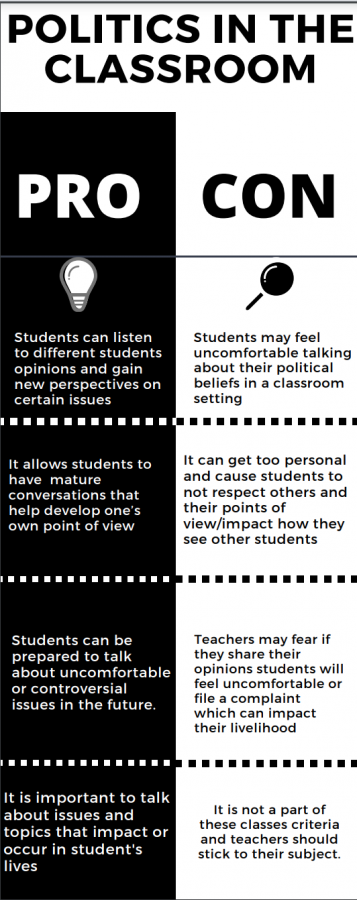Politics in the classroom
April 10, 2021
Every day, students and teachers walk into their schools, oblivious to the change and impact that their government plays in shaping the education they are given or give. From school board elections to the education branch of our executive government, educational policy and curriculum are formatted. On both sides of the political spectrum, opinions about schools are established– whether they relate to increasing funding, instituting mandatory classes, bond referendums, opportunities outside the classroom, the responsibility of public schools to communities, and where educational control lays. Nonetheless, in the end, students will receive an education from their educators 一 an education that would have been impacted by policy from both Republicans and Democrats on the state and national level.
As recent events unfolded from May of last year to now, much controversy has sparked on topics such as humanitarian and moral values and those of political affiliation – which makes people question where to draw the line between the two. Though many incidents have resulted in giving greater attention to related movements, prompting discussion among family members and friends, or simply being more aware of an individual’s relationship between his/herself and his/her community, many have argued that these events garnering national recognition may infiltrate what people deem as moral/immoral as coming to be politicized and those topics which are simply founded on a political basis come to be moral issues.
It is important to note where the line is drawn between talking about politics, humanitarian social justice issues, and just teaching impartial about what happens in US politics. However, every conversation starts and every major event that is uncovered will affect students depending on how such controversies are taught, who teaches them, and the biases both the teachers and students have already established.
In a survey Eastside conducted, 62.5% of East students said that the discussions stemming from political topics should be conducted objectively, whereas teachers should teach students about politics and historical events, without inputting some sort of bias. 37.5% of students expressed the beliefs that teachers should express their concerns, issues, and views with what is going on in the current political atmosphere 一 especially if such concerns, issues, or views stem from modern hot topics, pressing humanitarian social justice claims, or unfortunate events that are currently popular in US society, economy, and culture. From those surveyed, no students believed that politics and other political issues shouldn’t be taught in school.
Although there is a divide in America between political beliefs, education is one of the most pressing concerns for all parties. It is important to properly and effectively teach mathematics, English comprehension, history, new 21st century skills, and leadership qualities, as the education taught today will shape the future of America’s landscape. Continue to read about how political education is challenged and taught in schools like Cherry Hill East today.
